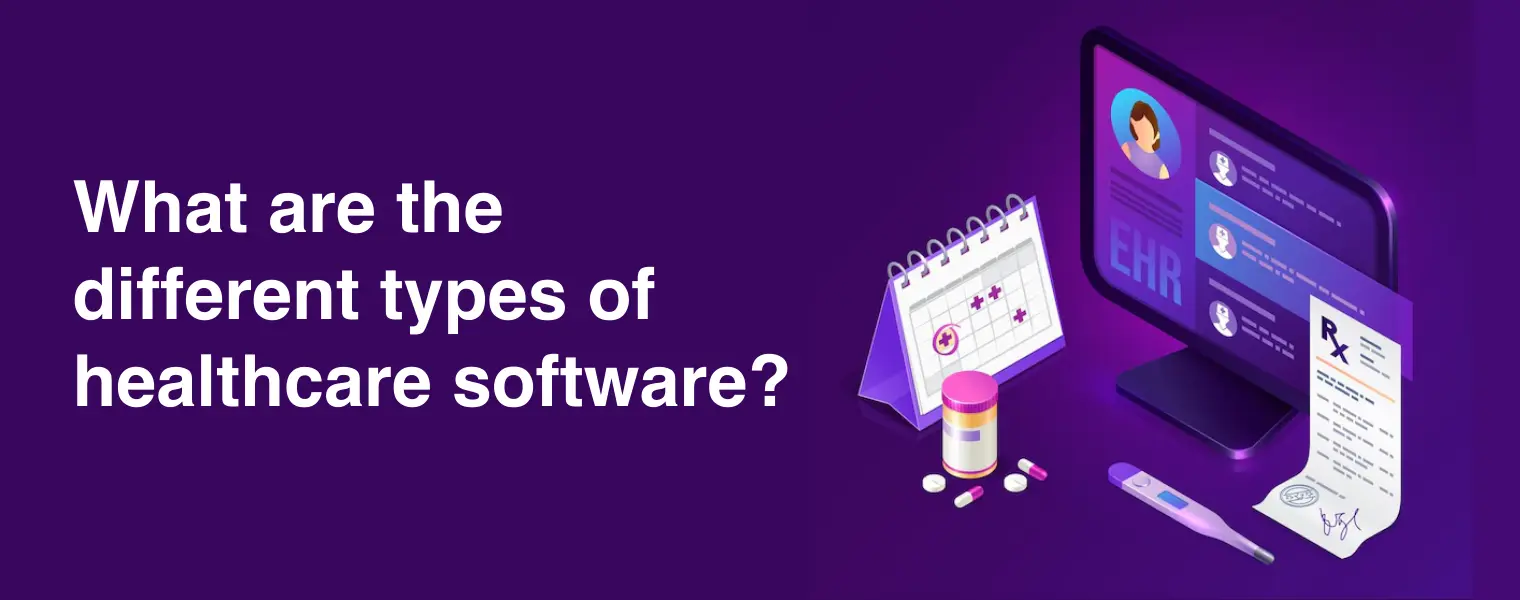
Regulatory agencies and the general public are putting pressure on the healthcare industry to transition to digital systems. The government is pushing for digital solutions to improve the transparency of hospitals and other health-care systems. The general population is growing more aware of their healthcare needs and options, and they are seeking more efficient and accessible healthcare systems, as are healthcare providers. Many healthcare IT companies are attempting to meet this demand by offering a variety of software services. Let's look at the many forms of healthcare software used by different healthcare providers. The process of selecting appropriate software for a health facility is similar to that of selecting software for any other business, but the options may differ. It can be perplexing at times, but this essay will go through numerous categories in further depth. Consider all of them, determine what your organization requires, and determine which characteristics are most beneficial to you. The application of software for various types of healthcare is known as healthcare information technology. Consumers, clinicians, government, insurers, and others can all benefit from comprehensive digital technology management. The usage of such software enhances the quality and efficiency of healthcare. It enhances and simplifies management, as well as the accuracy of diagnosis. It also decreases costs and medical errors while boosting administrative and clinical procedures' efficiency.
EHR (electronic health records), are digital databases that keep track of patient information.. It is used by hospitals and clinics to preserve a patient's complete medical history. Government health officials in many countries are pushing ahead with plans to make electronic health records mandatory. When compared to paper-based data, these records provide a safe and easy-to-access method of preserving medical records. Electronic health records have no risk of losing medical information, becoming unreadable, or being lost over time. It also minimizes redundant medical records because there is just one file that is updated throughout time. Electronic health record software is used in both clinics and hospitals, and it is often combined with hospital administration and practice management software.
Clinic management software, usually called Practice management software, is used to manage clinics. Depending on the clinic's demands, software with various combinations of capability is available. Appointment scheduling, billing, and electronic health records are all common features. Software with integrated lab and pharmacy administration features is also available if the clinic has its own lab or pharmacy. Practice management software streamlines a clinic's workflow, ensures error-free documentation, manages appointments and payments, and improves the system's efficiency. For dentistry, ophthalmology, and other specialty clinics, specialized systems with specific prescription management and health records are available. The system can also manage queues based on tokens or appointments in the clinic.
Hospital management system includes practically all of the features listed above, as well as others. They're a completely integrated system that can handle the entire hospital's management. Both inpatient and outpatient departments can use them to manage appointments and electronic health information. They're used to keep track of doctors' schedules, operations, and other procedures, as well as everything else related to them. They can also oversee the hospital's laboratories and pharmacy.. The HMS systems may also manage the rooms, labeling them as occupied; empty, under maintenance, and so on, making it simple to assign rooms and beds to patients.
Patients can arrange appointments, examine their health data and treatment plans, and manage their prescriptions via hospital management systems that are commonly linked to the hospitals' websites. These days, they also come with patient apps that make these same duties easier for patients via their cellphones. Some hospital management systems send out SMS alerts for follow-up treatments, immunizations, and other things. Because of the HMS's integrated structure, all treatments performed in various departments of hospitals, all tests performed, all medicines administered and prescribed are all tracked, allowing for easy comprehensive invoicing.
As the name suggests, lab information management systems are used to manage a lab's functions. Sample collection, inventory management, accounting procedures, and machine interaction with laboratory equipment will all be included. A good lab information system will automate the entire process and assure error-free results, as well as send notifications for aberrant results. Data from lab instruments is immediately read by the software using machine interface, and accurate records are kept against the sample data. Provisions for adding test findings to patient data may be included in LIMS systems that are connected with hospital management systems. In addition, independent laboratories can use stand-alone systems. Lab information management systems assist lab technicians in achieving a more efficient workflow and improved quality control. Samples are tracked using the software from the time they are collected until the results are delivered, which means that any technician in the lab can figure out what to do with a sample at any stage along the road, preventing sample management concerns. The approach also reduces errors, enhancing the lab's reputation.
Since the advent of computerized accounting, billing software has been a feature of hospitals and clinics. Even before EHRs were developed, many hospitals used accounting software.. Billing software makes managing insurance claims and keeping track of medical spending much easier. All of the patients' medical costs may be conveniently accessed and arranged with the help of billing software. They are still available as stand-alone systems, even though they are now included with hospital and practice management systems.
DoFort offers a variety of hospital management software options. We are a leading provider of Hospital Management Software, which is a comprehensive Hospital Information & Management System that can integrate all HIS systems, processes, and machines into an intelligent information system to improve operational efficiency and assist hospitals in making quick decisions using MIS and Analytics
Welcome to DoFort !